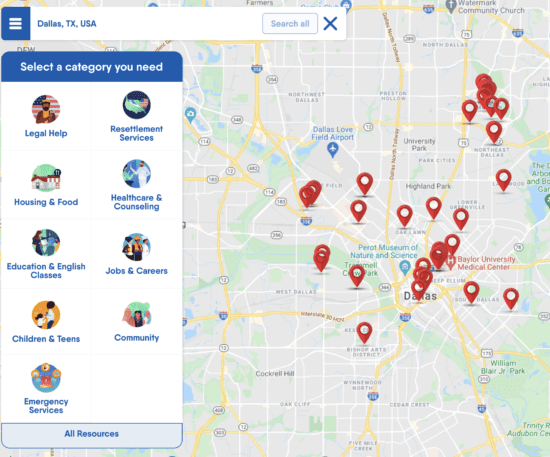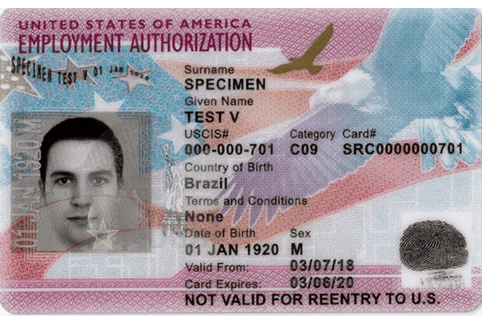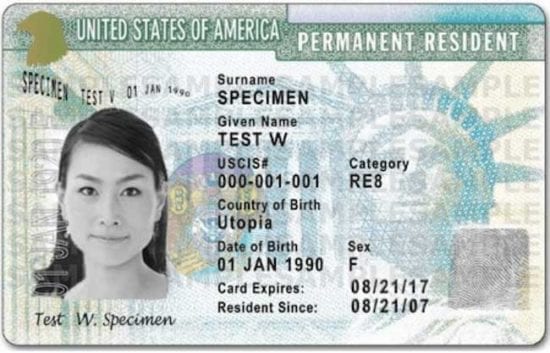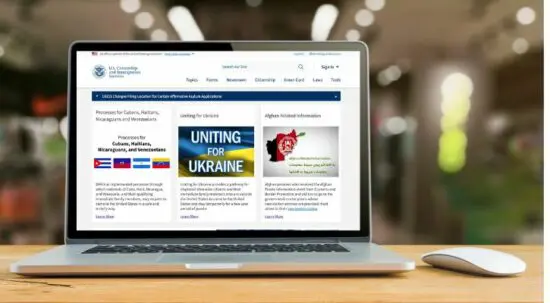Nếu bạn là người nhận SIV đang muốn đến Hoa Kỳ, hãy xem thông tin về du lịch của IRAP.
Các loại tình trạng của người tị nạn Afghanistan
Người tị nạn Afghanistan có thể được tạm tha nhân đạo, Visa định cư đặc biệt (SIV), tị nạn, quy chế tị nạn hoặc tình trạng bảo vệ tạm thời (TPS). Hầu hết người tị nạn Afghanistan sẽ cần phải nộp thêm giấy tờ để có được tư cách pháp lý cho phép họ lưu trú tại Hoa Kỳ vĩnh viễn.
Tìm hướng dẫn chính thức trong Thông tin dành cho công dân Afghanistan của USCIS.
Bạn có thể nộp đơn xin nhiều tình trạng di trú cùng một lúc. Việc nộp đơn xin tị nạn hoặc TPS cùng lúc với đơn xin SIV sẽ không làm chậm quá trình này. Người dân Afghanistan được khuyến khích nộp đơn xin cấp tư cách thường trú càng sớm càng tốt.
| Điều quan trọng là phải tìm kiếm lời khuyên pháp lý từ luật sư di trú hoặc đại diện được công nhận. Nhiều tổ chức và luật sư cung cấp dịch vụ pháp lý miễn phí hoặc giá rẻ. |
Ân xá nhân đạo
Nếu bạn là người được ân xá nhân đạo nhưng không đủ điều kiện tham gia chương trình SIV, tình trạng của bạn chỉ là tạm thời. Nó kéo dài trong 2 năm. Bạn có thể nộp đơn xin tái tạm tha để tạm thời gia hạn quyền bảo vệ trong khi nộp đơn xin một tình trạng khác.
Người được ân xá không thể nhận được Thẻ xanh. Bạn phải được chấp thuận một tình trạng khác để có được quyền thường trú hợp pháp. Lựa chọn tốt nhất cho người Afghanistan được ân xá có thể là nộp đơn xin tị nạn.
Người Afghanistan được đặc xá có đơn xin tái tạm tha, tị nạn hoặc điều chỉnh trạng thái khác đang chờ xử lý vẫn có thể nhận được trợ cấp ngay cả khi thời hạn đặc xá hiện tại của bạn kết thúc.
| CẢNH BÁO: Nếu bạn nhận được thông báo nêu rõ thời hạn đặc xá của bạn sắp kết thúc và bạn phải rời khỏi Hoa Kỳ, thông báo đó có thể không đúng nếu bạn nhập cảnh thông qua OAW (nhưng có thể hợp lệ nếu bạn nhập cảnh thông qua CBP One). Nếu bạn bị ảnh hưởng, hãy trao đổi với luật sư di trú càng sớm càng tốt. |
Quy trình tái tạm tha
Nếu bạn được tạm tha nhân đạo thông qua Chiến dịch chào đón đồng minh (OAW), bạn có thể yêu cầu tái tạm tha. Những yêu cầu này được xem xét theo từng trường hợp cụ thể. Nếu yêu cầu của bạn được chấp nhận, bạn có thể tiếp tục sống và làm việc hợp pháp tại USA thêm 2 năm nữa. Bạn vẫn đủ điều kiện để được hưởng các dịch vụ ORR.
Bạn không cần phải nộp đơn xin tái tạm tha nếu bạn:
- có đơn xin tị nạn đang chờ xử lý hoặc đơn xin điều chỉnh trạng thái
- đã nộp đơn xin tị nạn hoặc AOS trước khi lệnh đặc xá ban đầu của bạn hết hạn
Để nộp đơn xin tái tạm tha, bạn phải hoàn thành và nộp Mẫu I-131 đã sửa đổi. Có thể thực hiện việc này trực tuyến hoặc qua thư. Mẫu đơn I-131 sẽ yêu cầu cả việc tái tạm tha và gia hạn giấy phép lao động của bạn. Không cần bất kỳ hình thức nào khác.
Chính phủ Hoa Kỳ có thể không cho phép những người được đặc xá nộp đơn xin tái tạm tha lần thứ hai. Hãy chuẩn bị tinh thần là tùy chọn này có thể không khả dụng.
Mẹo để yêu cầu tái tạm tha:
- Hãy xem thẻ EAD của bạn để đảm bảo thông tin trùng khớp với thông tin bạn ghi trên biểu mẫu. Bao gồm cách viết tên, ngày sinh và Số Đăng ký Người nước ngoài của bạn.
- Nộp hồ sơ trực tuyến có thể giúp bạn tránh được những sai lầm thường gặp. Nếu bạn chọn nộp hồ sơ trực tuyến, bạn sẽ cần có tài khoản myUSCIS.
- Nộp hồ sơ càng sớm càng tốt để bạn không có nguy cơ bị gián đoạn tình trạng và mất quyền hưởng các quyền lợi và dịch vụ.
- Bạn có thể nộp đơn xin tái tạm tha ngay cả khi bạn đang nộp đơn xin một tình trạng khác, chẳng hạn như tị nạn.
- Xem lại danh sách các tài liệu cần chuẩn bị, bao gồm bản sao EAD và I-94 của bạn. (Danh sách cũng bằng دری / Dari và پښتو / Pashto)
- Xem lại những câu hỏi thường gặp này
(https://youtu.be/Vxe8JI37S4c)
Visa định cư đặc biệt (SIV)
Bạn có thể nộp đơn xin SIV nếu bạn được chính phủ Hoa Kỳ, nhà thầu Hoa Kỳ hoặc ISAF tại Afghanistan tuyển dụng trong ít nhất một năm. Sau khi có Thư chấp thuận của Trưởng phái bộ (và nếu cần, Mẫu đơn I-360 SIV đã được chấp thuận), bạn có thể nộp đơn xin Thẻ xanh bằng Mẫu đơn I-485. Bạn có thể phải tham dự buổi phỏng vấn tại văn phòng USCIS địa phương. Bạn có thể được hỏi những câu hỏi liên quan đến tình trạng của mình.
Không có lệ phí khi nộp đơn xin Thẻ xanh cho người SIV của Afghanistan. Bạn cũng sẽ nhận được thời gian xử lý nhanh hơn. Dự kiến sẽ mất khoảng 8 tháng.
Xin tị nạn
Nếu bạn buộc phải rời khỏi Afghanistan để thoát khỏi sự áp bức và bạn không có SIV hoặc tình trạng tị nạn, bạn có thể đủ điều kiện xin tị nạn. Xin tị nạn là một quá trình dài nhưng nó mở ra con đường để có thể cư trú hợp pháp tại Hoa Kỳ vĩnh viễn.
Thông thường, bạn phải nộp đơn trong vòng một năm kể từ ngày đến Hoa Kỳ.Bạn có thể đủ điều kiện để nộp đơn sau một năm nếu bạn nộp đơn trước khi thời hạn đặc xá của bạn hết hạn.
Tìm hiểu cách nộp đơn xin tị nạn. Khi được chấp thuận tị nạn, bạn sẽ đủ điều kiện được hưởng một số quyền lợi nhất định. Bạn có thể nộp đơn xin Thẻ xanh một năm sau khi đơn xin tị nạn của bạn được chấp thuận. Bạn phải có mặt tại Hoa Kỳ ít nhất một năm để có thể nộp đơn. Bạn có thể phải trả lời các câu hỏi về tình trạng của mình.
(https://www.youtube.com/watch?v=GXL_oR1psVI&feature=youtu.be)
Người tị nạn
Nếu bạn nhập cảnh vào Hoa Kỳ với tư cách là người tị nạn, bạn có thể nộp đơn xin Thẻ xanh sau một năm kể từ ngày đến. Cơ quan tái định cư có thể giúp bạn tìm sự trợ giúp pháp lý để hoàn thành đơn xin này.
Tình trạng Được Bảo Vệ Tạm Thời (TPS)
TPS cho phép bạn tạm thời lưu trú tại Hoa Kỳ. Bạn có thể có TPS cùng với một trạng thái khác. Nếu bạn chỉ có TPS, bạn không đủ điều kiện để nộp đơn xin Thẻ xanh.
Tìm hiểu cách đăng ký TPS Afghanistan.
| Nếu bạn thay đổi địa chỉ, bạn phải thông báo cho USCIS trong vòng 10 ngày, ngay cả khi bạn chuyển đến một địa điểm tạm thời. Sử dụng mẫu Thay đổi địa chỉ của USCIS. |
Giấy phép lao động
Bạn có thể nộp đơn xin giấy phép lao động hoặc Văn bản ủy quyền việc làm (EAD) nếu bạn có đủ điều kiện. Bao gồm tị nạn, người xin tị nạn chính trị, tình trạng bảo vệ tạm thời và đặc xá. Tìm hiểu thêm về quy trình nộp đơn.
Lợi ích công cộng
Nếu bạn có tư cách tị nạn, người tị nạn chính trị, SIV hoặc người được ân xá, bạn có thể nhận được các dịch vụ và lợi ích công cộng giúp bạn ổn định cuộc sống tại cộng đồng mới.
Bạn phải được đặc xá vào USA trong khoảng thời gian từ ngày 31 tháng 7 năm 2021 đến ngày 30 tháng 9 năm 2023 để đủ điều kiện nhận các quyền lợi này. Nếu bạn được đặc xá sau ngày 30 tháng 9 năm 2023, chỉ những người sau đây mới có thể nhận được lợi ích công cộng:
- Vợ/chồng hoặc con của người Afghanistan được ân xá
- Cha mẹ hoặc người giám hộ hợp pháp của trẻ em không có người đi kèm được ân xá
Tất cả những người Afghanistan khác được đặc xá vào USA sau ngày 1 tháng 10 năm 2023 sẽ **không** đủ điều kiện hưởng các dịch vụ tái định cư và lợi ích công cộng. Người sở hữu thẻ TPS không được hưởng những quyền lợi này.
Những lợi ích này bao gồm:
Đoàn tụ với các thành viên trong gia đình
Bạn có thể nộp đơn xin bảo lãnh cho vợ/chồng và con chưa lập gia đình dưới 21 tuổi của mình đến USA. Tìm hiểu thêm. Không mất phí để nộp đơn.
- Người sở hữu Thẻ xanh nộp Mẫu I-130
- Người tị nạn và người xin tị nạn nộp mẫu đơn I-730
- Người sở hữu Thẻ xanh SIV nộp Mẫu I-824
- Người được ân xá nộp đơn DS-4317
Dịch vụ xã hội
Office of Refugee Resettlement (ORR) cung cấp hỗ trợ liên tục về việc làm, quản lý hồ sơ và các dịch vụ khác như các lớp English as a Second Language (ESL) do các tổ chức cộng đồng (NGO) cung cấp.
Các loại dịch vụ dài hạn được cung cấp có thể khác nhau ở mỗi nơi. Một số văn phòng có dịch vụ đặc biệt dành cho thanh thiếu niên, phụ nữ và người tị nạn lớn tuổi.
Trợ cấp tiền mặt công cộng
Bạn có thể nhận được hỗ trợ tiền mặt khi mới đến. Số tiền bạn nhận được và thời gian bạn được nhận sẽ tùy thuộc vào quy mô gia đình, độ tuổi và nơi bạn sinh sống. Một khi bạn có việc làm, số tiền có thể giảm xuống hoặc dừng lại.
Các chương trình tiền mặt công cộng có thể bao gồm, nếu có:
- Trợ cấp tiền mặt cho người tị nạn ORR (dành cho người lớn không có con)
- Hỗ trợ Tạm thời cho các Gia đình nghèo khó (TANF) dành cho các gia đình có trẻ em
- Chương trình Thu Nhập An Sinh Bổ Sung dành cho người cao tuổi và người khuyết tật
Bảo hiểm y tế và chăm sóc sức y tế
Ở Hoa Kỳ, hầu hết mọi người sử dụng bảo hiểm y tế để chi trả cho chăm sóc sức y tế. Loại bảo hiểm bạn có thể nhận được sẽ khác nhau tùy thuộc vào tiểu bang bạn sinh sống và hoàn cảnh của bạn. Người dân Afghanistan cũng có thể nhận được sự trợ giúp của chính phủ về chăm sóc sức y tế.
Bất kỳ ai cũng có thể được chăm sóc sức khỏe thông qua phòng khám cộng đồng. Nếu bạn cảm thấy buồn hoặc chán nản, hãy tìm hiểu cách tìm kiếm sự trợ giúp về sức khỏe tinh thần.
Trợ cấp thực phẩm hàng tháng
Chương trình Hỗ trợ Dinh dưỡng Bổ sung (SNAP) là chương trình của chính phủ giúp bạn trả tiền mua thực phẩm khi bạn không có đủ tiền. Một tổ chức cộng đồng (NGO) có thể giúp bạn nộp đơn xin tham gia chương trình này.
Bạn sẽ nhận được một thẻ giống như thẻ ghi nợ để sử dụng tại cửa hàng tạp hóa. Số tiền bạn nhận được sẽ tùy thuộc vào tiểu bang bạn đang ở và số người trong gia đình bạn. Khi bạn bắt đầu làm việc, số lượng có thể giảm xuống hoặc dừng lại.
Trợ giúp cho các gia đình có trẻ em
Nếu bạn có con, bạn có thể được hỗ trợ chi trả chi phí chăm sóc trẻ em trong khi bạn đi làm.
Bạn cũng có thể nhận được sự hỗ trợ cho trẻ nhỏ bao gồm trường mẫu giáo, thăm nhà và hỗ trợ thực phẩm thông qua:
- Head Start
- Chương trình thăm nhà dành cho bà mẹ, trẻ sơ sinh và trẻ nhỏ
- Chương trình dinh dưỡng bổ sung đặc biệt dành cho phụ nữ, trẻ sơ sinh và trẻ em (WIC)
Trợ giúp việc làm
Có những chương trình giúp bạn tìm việc làm, chuẩn bị hồ sơ xin việc và tiếp cận các dịch vụ khác như lớp học Tiếng Anh hoặc chương trình đào tạo nghề. Bạn có thể nhận được sự trợ giúp thông qua tổ chức cộng đồng (NGO) hoặc các chương trình địa phương thông qua Bộ Dịch vụ Lực lượng Lao động.
Tìm hiểu về việc xin giấy phép lao động và cách đăng ký cơ hội việc làm.
Hỗ trợ nhà ở
Nếu bạn có thu nhập thấp, bạn có thể nhận được sự hỗ trợ từ chính phủ để trả tiền nhà thông qua các chương trình hỗ trợ nhà ở công cộng HUD và Mục 8. Những chương trình này có thể có danh sách chờ dài và khác nhau ở mỗi địa điểm.
Tìm hiểu thêm về việc tìm nhà ở.
| Điều quan trọng là phải biết rằng các dịch vụ có thể khác nhau ở mỗi nơi trong Hoa Kỳ. |

Tìm trợ giúp pháp lý, lớp học tiếng Anh, phòng khám sức khỏe, hỗ trợ nhà ở, v.v. Tìm kiếm bản đồ địa phương và danh sách các dịch vụ cho người nhập cư ở Hoa Kỳ bằng ứng dụng FindHello.
Thông tin trên trang này đến từ DHS, USCIS, IRAP, CLINIC, MPI, và các nguồn đáng tin cậy khác. Chúng tôi mong muốn cung cấp thông tin dễ hiểu được cập nhật thường xuyên. Thông tin này không phải là lời khuyên pháp lý.






